GreenStart's mission is to foster a resilient energy and food system for New Hampshire by providing technical education and practical agricultural examples. An educational non-profit organization established in 2006, GreenStart sees food and fuel security as the end-product of a vibrant, sustainable agriculture system in New Hampshire.
New Hampshire has 40% of its land area in agricultural soils, yet farms only 10% and imports 95% of its food and fuel. New Hampshire has no significant petroleum resources. To feed and fuel itself from sustainable natural resources, New Hampshire must improve its soils while also improving production.
To achieve this end, GreenStart facilitates projects that
1) increase soil carbon “banking”
2) decrease energy inputs
3) increase both food and fuel outputs (positive energy and carbon balance)
4) promote “tight” cycling of nutrients
5) provide opensource access to appropriate knowledge, seeds and equipment


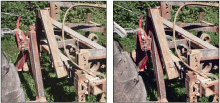

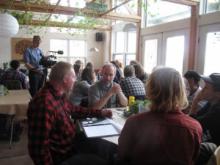
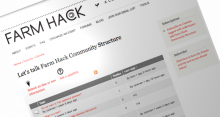


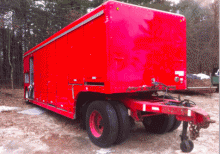

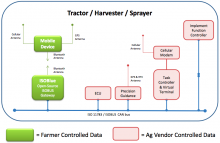
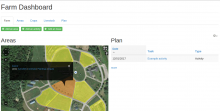

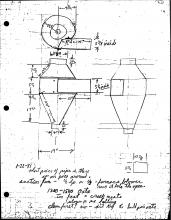
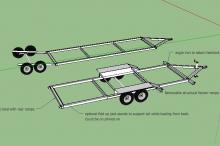

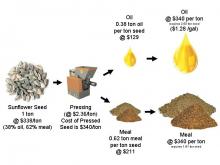
I think this is why this community is so important - to prioritize and help folks along to gather more of the skills which would otherwise keep them dependent or reduce possibilities for innovation. I think that is why "hacker spaces" are popping up that enable access to more tools, some of which are not needed every day, but make a job from being a struggle to a pleasure. There are several farms in our area that rent out space to equipment shops, so that they have quick access. Our farm does work for our own operation and a couple others, so there are a lot of models towards shared ownership/access and scale that justifies the infrastructure. Some of the approaches are to reduce the cost of the tools to accomplish the task, or to save folks from investing in tools that are less important - and that is where feedback is especially important based on what folks are actually using.
For example, there was a guy at a recent Farm Hack event who had a hand held metal circular saw that he thought was the best thing going - I had looked at them and the price always kept me away, but he made a great case for it. He didn't have the tank rental fees, gas etc. and hardly touched his torch or even the plasma cutter. In two years of my tank rentals I think I probably could have paid for it.
I also just talked with a group of farmers and they just got a TIG just so they could work on their aluminum irrigation piping. I have not made the investment myself, on the tig or the mill yet, as I can't justify it just for our operation yet, but I have been talking about sharing the shop with some other folks and adding those things in. As our operation diversifies and grows the shop becomes more important. Since we serve three farms and have a good deal of cooperative relationships I think that is what makes it possible to invest in some of this- but not all at once. I know I have a bunch of stainless tanks that I will need in the next year or so, and that may push a TIG - but even then it may be a shared investment. The mill will be a similar story . There always seem to be several in the $3000 range around here - as you mention the skill is the big factor. In this case wouldn't invest alone, but with a machinest friend of mine who is doing custom work who might co-locate. He wouldn't need it every day either. I provide the space, he provides expertise and it is conveniently available when it is needed- but for both of us the upcoming projects need to justify the space, the time and the expense.
Ideally I would like to see farmhack help link up the services you mention with farmers through the tools pages. If done well, the documentation is good enough to take it to a custom shop, or if the skills and tools are there on-farm then all the better. Some of the tools don't need to be owned but I think farm hackers should know what is possible and how to access tools. I see it as helping each other breaking down barriers, reduce the intimidation factor for some of these skills and become more independent through greater collaboration.